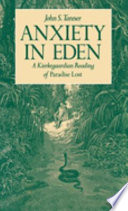 | Hippolyte Taine - 1866 - 540 pàgines
...displaying sublime and pure thoughts without transgression. And long it was not after, that I was contirmed in this opinion that he who would not be frustrate of his hope to Write well bcreafter in laudable things ought himself to be a true poem; that is a composition and pattern of... | |
 | Epes Sargent - 1867 - 540 pàgines
...lifestruggle against vice, and error, and darkness, in all their forms. He had started with the conviction " that he who would not be frustrate of his hope to...that is, a composition and pattern of the best and honorablcst things ; " and from this he never swerved. His life was indeed a true poem ; or it might... | |
 | C. A. Patrides - 1989 - 370 pàgines
...persistently celebrate had been the aim of the poet himself many years since. As he wrote in 1642, "he who would not be frustrate of his hope to write well hereafter in laudable things, ought him selfe to bee a true Poem" (p. 62). To what extent the poem has been realized will continue to be... | |
 | Elizabeth D. Harvey, Katharine Eisaman Maus - 1990 - 380 pàgines
...me" (889; the word "nature" recurs) that is the discovery of other authors. Thus the famous sentence, "that he who would not be frustrate of his hope to write well hereafter in laudable things, ought him selfe to be a true Poem" (890). Futurity depends upon prior textualization. But so, insistently,... | |
 | John Beebe - 1992 - 200 pàgines
...Ibid., p. 5. 47. Campbell, "Creativity," p. 142; Eco, Aesthetics of Aquinas, pp. 98-102. 48. ". . . he who would not be frustrate of his hope to write...that is, a composition and pattern of the best and honorablest things. . . ." John Milton, "An Apology for Smectymnuus," in Bush, The Portable Milton,... | |
 | John S. Tanner - 1992 - 226 pàgines
...enlightenment he most desires comes only through holiness and purity. Hence, Milton's famous dictum that "he who would not be frustrate of his hope to write well hereafter in laudable things, ought him selfe to bee a true Poem" enacts a fundamentally prophetic gesture. Similarly prophetic is his... | |
 | Kevin P. Van Anglen - 1993 - 280 pàgines
...from "An Apology of Smectymnuus" that Emerson quotes in the excerpt from "John Milton" just discussed (that" 'he who would not be frustrate of his hope...laudable things, ought himself to be a true poem; ... a composition and pattern of the best and honorablest things' "). Channing then treats these early... | |
 | John T. Shawcross - 1993 - 372 pàgines
...Sonnet 7, the Letter to an Unknown Friend, "Lycidas," and Reason, he remarked in Apology for Smectymnuus "that he who would not be frustrate of his hope to write well hereafter in laudable things, ought him selfe to bee a true Poem, that is, a composition, and patterne of the best and honourablest things;... | |
 | Kevin Dunn - 1994 - 266 pàgines
...lies behind Milton's famous version of the ancient dictum that a good orator must be a good man:30 "He who would not be frustrate of his hope to write well hereafter in laudable things, ought him selfe to bee a true Poem, that is, a composition, and patterne of the best and honourablest things"... | |
 | Carl R. Woodring, James Shapiro - 2007 - 764 pàgines
...activity as the final preparation for a heroic poem. As he puts it in the Apology, "he who would . . . write well hereafter in laudable things, ought himself to be a true poem," presumably, in his case, by involvement in a just cause. In the Reason of Church Government Milton... | |
| |